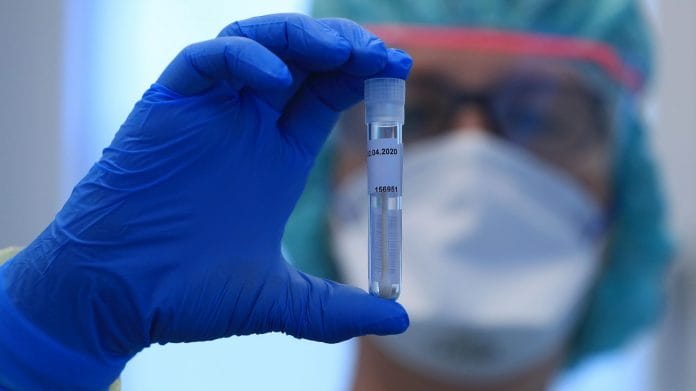Bengaluru: The novel coronavirus can be sensitive to extreme heat, and lasts long on smooth surfaces, including surgical masks, new findings on the stability of the virus in different environmental conditions has shown.
A team from the University of Hong Kong used infected tissue cultures to incubate and study the virus. It also studied how long it takes for household disinfectants, bleach, and soap to kill the virus.
The findings were published in the medical journal The Lancet Microbe, but haven’t been peer-reviewed yet. It follows a number of such preliminary studies conducted on the effects of temperature as well as studies on how long the virus lasts on surfaces.
Also read: Modi govt throws Covid-19 innovation ‘challenge’ to Indians, will fund winning ideas
What the researchers found
Upon studying for temperature sensitivity, the researchers found that the novel coronavirus was very stable at 4°C, but exhibited sensitivity to heat.
After 14 days, at 4°C, it showed only a minimal reduction in quantity. At room temperatures of 22°C (and a relative humidity of 65 per cent, or what’s in Chennai at the moment), the virus disappeared after 14 days, keeping in line with how long immune-healthy people tend to be positive.
But the team found that the virus was killed in just under five minutes at a temperature of 70°C.
When it comes to remaining on surfaces, the researchers discovered that the virus tended to disintegrate quicker on surfaces that had texture such as paper, wood or cloth.
The study said the virus could not be detected on printed and tissue papers after three hours, while treated wood and cloth retained it for two days.
The smoother the surfaces get, the longer the virus lasts. On surfaces that are smoothened by treatment such as glass, the novel coronavirus could be detected for four days. On stainless steel and plastic, it remained for up to seven days.
This has huge implications for where the material is used, and the authors pointed it out directly. “Strikingly, a detectable level of infectious virus could still be present on the outer layer of a surgical mask on day 7,” the paper said.
The survival of the virus on a mask poses many complications as the number of cases increase. As people wear masks over their nose, there is a default rise in risks. Most people also touch their masks constantly, transferring the virus to their hands.
Additionally, the authors also discovered that at room temperature of 22°C, common disinfectants and bleach tended to destroy the virus in five minutes. But hand soap, despite incubating for five minutes, continued to sustain detectable viruses. The virus was also found to be stable in a wide range of pH conditions.
“Overall, SARS-CoV-2 can be highly stable in a favourable environment, but it is also susceptible to standard disinfection methods,” the authors said.
Also read: How loss of sense of smell could indicate Covid-19 infection when there is no other symptom







May be disinfectant soap such as Dettol or. Carbolic soap can kill Carona virus?
That’s not a good sign at all. Most people use soap to wash their hands. Not surprised the spread is so great.
Liquid soap is supposed to be used for public use, not soap bars.
Soap should still significantly lessen droplet contamination by the 20 second washing method.